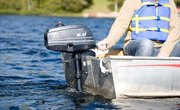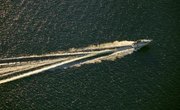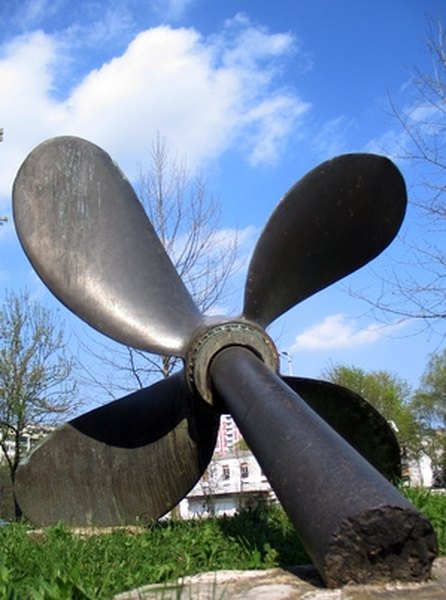
The diameter of the propeller affects the engine speed and efficiency. Combined with pitch, the prop diameter affects how quickly the boat can move, the distance of travel for each revolution of the prop and the torque of the spinning propeller. It is important that your propeller is matched to the motor or serious engine problems could result.
How Diameter Affects Performance
Propeller diameter increases with the size of the boat. As the diameter increases, the blades of the propeller offer more resistance to travel through the water. This creates potentially damaging drag on smaller engines and boats. For larger boats, a larger diameter provides more propulsion power for the same reason. The larger boat presents more resistance to forward movement and needs a prop with a higher rotational reach. Diameter and pitch together determine the size of a propeller. To determine the prop size, measure the distance of forward movement for one complete rotation of the prop. This allows you to have two props of the same size but different diameter measurements. Higher pitches allow for greater speed and lower pitches reduce the drag on the engine.
Engine RPM
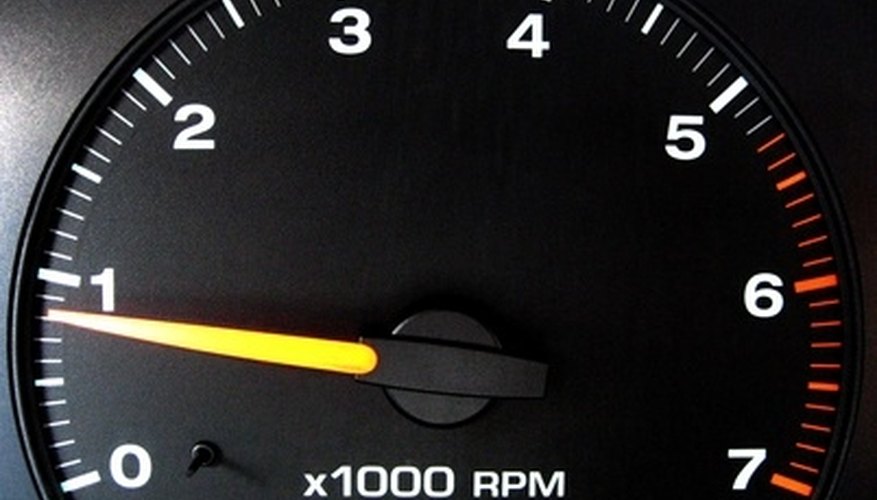
rpm gauge image by 76media from Fotolia.com
A large diameter prop with a shallow pitch will have to spin more times to achieve the desired movement. To prevent the engine from over-accelerating, make sure that you use a prop with sufficient pitch for the size and weight of the boat. Larger diameter props offer the potential for higher speeds if the engine has the torque to push through the increased water resistance. Boating professionals such as Overton's or Dunnrite Propellers recommend matching your propeller diameter closely to the rated RPM of the engine.
Cylinder Degradation
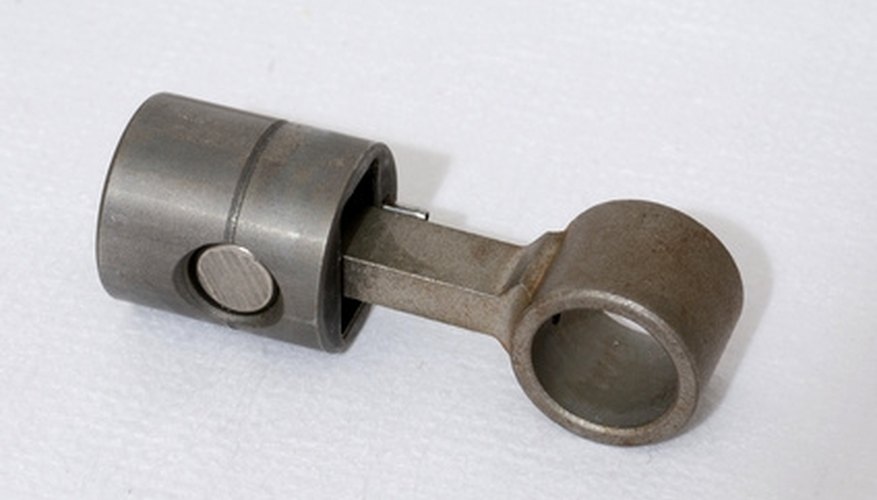
pistone image by Michele Campini from Fotolia.com
The more over-sized the prop diameter, the greater the wear you are placing on the motor. As the diameter increases, more power is required to achieve the same workload, resulting in abnormal stresses within the engine cylinders. In a worst case scenario, pistons or cylinder walls can be become damaged or the piston rings blown. Symptoms may include unusual engine tapping and reduced performance during acceleration.
Fuel Efficiency
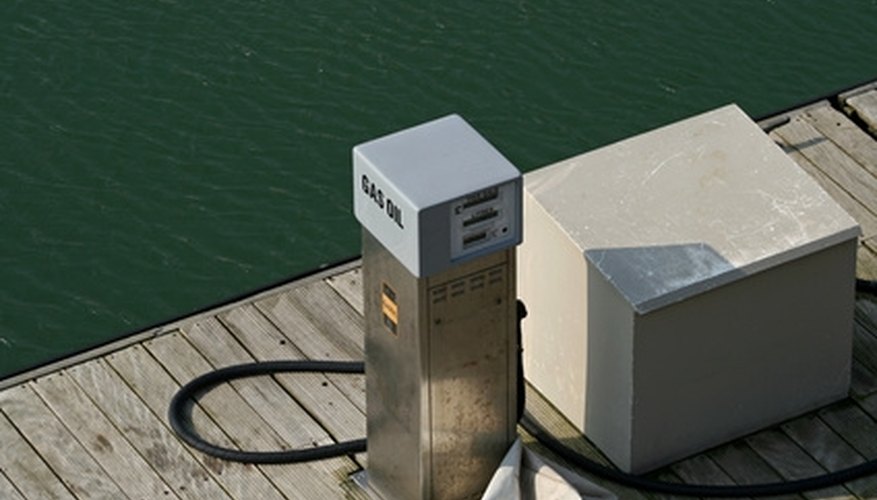
marina fuel supply image by Christopher Nolan from Fotolia.com
Increasing the propeller beyond the factory recommended size will cause a proportionate loss in fuel efficiency. Larger diameters can be a liability to the operation of the boat because more torque is required to achieve the same forward motion. Similarly, if the prop diameter is too small, the prop will spin at the desired RPM but provide a reduced forward motion, increasing engine wear and impacting fuel economy.
References
Writer Bio
Roger Golden began his career as a writer in 2008, when he began writing weekly insurance and personal finance articles. Golden's work has appeared on eHow, USAToday.com, TheSpoof.com and his privately managed blogs, .modern Dislogic and Outdoors—Dixie Style.

